|
Today I was thinking what to write about when I received a message via Messenger from an unfamiliar flutist asking for an possibility to play with me in my town.
Usually I just ignore such messages but today I thought it would be a great material for a post. So this flutist (for privacy reasons I won't give you his name or his country of origin here) wrote in which countries he has played and after asking for recital opportunity to play with me in Vilnius wrote that he is hoping for a favorable reply and left his CV and audio sample with his playing attached and mentioned that money isn't important for him. All of this is very nice, of course, and he could be a great flutist but I'm not going to reply. Why? Simple. Because I'm not looking for concert opportunities to play with a flutist. I could write to him asking what performance of mine with a flutist did he enjoy recently? Send me an answer to this question and I will try to arrange a concert for you. But of course, there isn't such a performance of mine at least recently because I'm not in the business of playing with unfamiliar flutists. It's all about trust. If there is some degree of trust we tend to communicate with people more deeply. What he should have done instead is to do a little research and offer me something that I'm actually interested in. Otherwise his message feels like spam to me. Not personal. Not anticipated. Not delivered to the person who wants to get it. Does it mean it's wrong to ask for recital opportunities from people who don't know you? Well, not necessarily. At least not in the case when you know that this person who might be a concert organizer is actively looking for performers. I write such messages myself occasionally. But only to the venues that I know hold regular organ recitals. And I don't just offer to them my services as an organist. No, I'm writing a message with an offer which is so unique to me that if my name might be omitted they could still identify me from this offer through my reputation. And obviously people who reply value my reputation otherwise they wouldn't even bother. The first step in this strategy is asking yourself a question, "What unique skills do I have that position me beyond my competition?" In other words, why should they choose me instead of somebody else? Certainly not because I'm cheaper than anybody else... If somebody can't answer this question, then their task is obvious - go get some unique skills.
Comments
Today my friend @pauliakaz played a lunchtime mini organ recital at Vilnius Cathedral. On the program was music of Johann Sebastian Bach (Prelude and Fugue in C Major, BWV 545), Juozas Naujalis (Prelude on the Lithuanian hymn tune "Jėzau, pas mane ateiki" and Leon Boellmann (Suite Gothique, Op. 25). I brought my tripod to the event to help @pauliakaz record a video using his phone. He also asked me to record an audio with my phone. I suggested we livestream it to Facebook in a mode where only we could see it but he preferred a raw video recording with a better quality. If you know me, you probably are aware how often I record my own performances and practices. Therefore it's no surprise why I thought @pauliakaz did really well by choosing recording his performance today. He said he will use this file to split it into separate videos and upload to YouTube in the future (and hopefully share it on Steem as well). In fact, he played so well today that it could easily have been livestreamed today. I know that most organists from my country don't usually record their performances. They simply haven't created a habit. They don't want to show their work in public in fear of criticism or lack of technical skills. To them the pain of owning the consequences of sharing your video online is greater than the benefit it provides. Here's the thing - showing your current work is the best way I know to get opportunities for future work. In other words, having an extensive archive of your performances online increases chances to get invited to play recitals in the future. Personally I have been invited to a number of recitals in Lithuania and abroad by organizers who found my work online in the form of text, pictures, audio, video or any combination of them. Of course, not every performance is a perfect one and today @pauliakaz knows things that could be improved. In my opinion, he could work on keeping his fingers in contact with the keys at all times. He could work on his pedal articulation in the early music, although @laputis who was downstairs in the audience said it wasn't an issue. However, she did mention the value of practicing piano etudes and Hanon exercises to strengthen his finger technique. A lot of organists feel their shortcomings, real of imagined and think they are not worthy of sharing their work publicly. Here I'm talking about making a recording but take it one step further and you will see organists who don't perform in public at all anymore. Although constantly striving to become a better organist is a healthy approach, perfectionism isn't. People who say they are unworthy because their performance isn't perfect are simply hiding. If they are waiting for the day when their playing will be spotless and without mistakes should know that this day might never come. But we aren't in the perfection business. We are in the sharing business. PS In this rehearsal video @pauliakaz compares one passage of Introduction-Choral by Leon Boellmann while playing it one octave lower to produce a fuller, darker and more French Romantic-like sound on a German Neo-Baroque organ: Would you like to learn Sortie or Offertory in D Major from L'Organiste by Cesar Franck? I hope you'll enjoy playing this piece yourself from my PDF score. Thanks to Gerrit Jordaan for his meticulous transcription from the slow motion video. What will you get? PDF score with complete fingering written in which will save you many hours of work. Basic Level. 6 pages. Let me know how your practice goes. This score is free for Total Organist students. Check it out here Yesterday Ausra and I went to an organ recital at St Casimirus church by Dr. Cristian Rizzotto and this inspired me to share some of my views on recital programming.
Imagine you are an organist who is invited to play an hour long recital. You naturally have to think about what music you will play. There are various approaches to this challenge. Some organists prefer to play only famous organ pieces so that listeners perhaps would recognize them. Some - only unfamiliar ones - because famous pieces are boring to them. Some - play a mixture of familiar and new music. Some - dedicate their program to some theme or to one particular composer or historical period or country. Whatever I choose to do I think one principle should always be kept in mind - a balance between a contrast and unity. If I play music which is too unified in character, then after 15 minutes or less it becomes boring. If I play music which is too contrasting - then people can't focus their attention for a longer time and can't find some common ground which also results in a boring experience. What do I mean about unified character? Well, it could be similar tempo (only fast, only slow), similar mood (only sad or only joyful), similar key (only major or only minor), similar dynamic level (only soft or only loud), similar pitch level (only high or only low), similar registration (only principals, only flutes, only strings or only reeds), similar writing style (only polyphonic or only homophonic music). But again if too much contrast is also not good. It might sound contrary to the logic but if I mix all these elements too much without any order, then listeners can't find a unifying element of my recital. When I improvise an hour long recital I always am conscious about the rule of contrast and unity as well. It doesn't matter that this music sounds for the first time and has never been written down before but listeners still can feel general idea pretty well. But above all I have to be conscious of the rule of contrast. It's like scenes of a good movie. They usually last 1 or 2 minutes and they seem to vary between positive and negative charge. So a lot of organ pieces are like that too. Every one or two pages you will find something new, something contrasting. As in a slow movie you could have long slow motion scenes, in organ music too you could have one mood last for 5 or even 10 minutes. But that's rather an exception than a rule. But of course, all of the above is my personal opinion and somebody else might have a different view. What I find boring, other might find exciting and vice versa. It's a fine art and not a science to program your organ recital well. I would say there isn't any silver bullet to this. One has to try out everything and figure out what works for them personally. On Monday I went to Vilnius Cathedral to assist my friend @pauliakaz where he was preparing for a lunchtime recital on Thursday. On the program - music of 3 composers - Prelude and Fugue in C Major, BWV 545 by Johann Sebastian Bach (German Baroque), Fantasie on Lithuanian hymn "Jezau, pas mane ateiki" by Juozas Naujalis (Lithuanian Romanticism) and Suite Gothique by Leon Boellmann (French Romanticism). This was the first time I heard him play all of these pieces together. @pauliakaz had some rehearsals here before to set up his registrations but I wanted to double check them, of course.
This organ is from 1960's, a Neo-Baroque instrument by East German firm Alexander Schuke. It has some characteristic sounds of this period which are high-pitched mixture sounds and lack of low-pitched foundation stops. For some music, such as French Romantic having many foundation stops is a must but when he started to play the opening of the Chorale by Boellmann from his Suite Gothique, it really sounded too light and actually harsh. So I suggested to @pauliakaz to play entire piece one octave lower in the hand part. This should give it more gravity and create an impression that there are lots of 16' stops in this organ. Usually if you do this, you have to check the left hand part if it doesn't descend lower than tenor c which an octave lower would become bass C - the lowest key on the keyboard. In this particular piece it was OK. Then you have to omit 16' stops in the manuals because one octave lower they would sound like 32' stops. We tried this and compared it to the regular height and it already sounded better. In the end we chose to use 16' stops in the manuals as well. In this particular acoustical environment it sounded just like at Saint Sulpice in Paris. PS The photo above is from yesterday's organ recital by Dr. Cristiano Rizzotto at St Casimirus church. @laputis and I came in 30 minutes earlier and the church was already full. Thank you everyone for participating! You all made us very happy with your entries. We have selected the following winners.
Have you ever wanted to start to practice on the organ but found yourself sidetracked after a few days? Apparently your inner motivation wasn't enough.
I know how you feel. I also was stuck many times. What helped me was to find some external motivation as well. In order for you to advance your organ playing skills and help you motivate to practice, my wife Ausra - @laputis and I invite you to join in a contest to submit your organ music and win some Steem. Are you an experienced organist? You can participate easily. Are you a beginner? No problem. This contest is open to every organ music loving Steemian. Here are the rules
Vidas: Hi guys! This is Vidas.
Ausra: And Ausra. V: Let’s start episode 480 of Secrets of Organ Playing Podcast. This question was sent by Ruth. And she writes: Today I will be going over hymns not familiar to my congregation. The reason is that I would like to select several for them to learn, but only one at a time. V: I thought of including this question in the podcast because I think it relates to the challenge of selecting repertoire and hymns that are not familiar to the congregation, and lots of people are in this situation. Not only Ruth, I think. A: Yes, especially if you don’t have a choir that leads congregational singing. Then it might be hard to introduce new hymns into a service. V: It’s maybe a different situation for Ruth, because she is an ordained minister, and she selects hymns. And for example, a lot of organists just follow their ministers’ lead, and they work with what they have. But sometimes, organists select hymns, too. A: True. V: If you are a music director. A: Yes, appropriate for an occasion. V: Or you work maybe with a minister together, right? And sometimes, a minister might choose readings from the scripture that talk about certain things, and a sermon appropriate too, and the music director would choose some hymns appropriate to these texts. But then the question is either to sing a familiar hymn about these topics or unfamiliar one? A: Well, I guess it’s probably a wise idea that during one service you will have only one unfamiliar hymn. Because if you would put all the unfamiliar hymns, I don’t think it would work. And another idea that popped into my mind when I was reading Ruth’s question was that it might be a good idea to do rehearsals with the congregation. Like really short, brief rehearsals. Probably before the service. V: Yeah, music director or organist could come forth in front of the congregation and sing one or two hymns. A: Yes, and maybe do one line solo, one verse, and then to sing with everybody. That’s a good practice. We did it actually, many years back, you remember? V: In Vilnius? A: Yes. V: Have we done this in Lincoln? A: I don’t think so. Everybody just sang so well, so we didn’t have to do it in Lincoln. V: Yeah. If you start to teach something before the service starts, people are really attentive in that moment, and they appreciate the care that you're providing, right, they know that organist is doing more than it’s required. It’s not required from you, it’s not in your job description to lead those rehearsals. But obviously, it’s a nice gesture, I think, and people would appreciate it. A: True. V. Maybe not for everybody, and not maybe right away, but if you do this week by week, you will get this tradition of better singing. A: That’s right. V: Which means a lot. All right, guys. We hope this was useful to you. Do you think Ausra, this was useful for people who work in churches. A: Yes, I think so. Rehearsals with the congregation, I think it’s a good idea. V: And choosing hymns that are not familiar for congregation, but not all of them right away, but just one or two at a time. A: True. V: And please send us more of your questions. We love helping you grow. And remember, when you practice… A: Miracles happen.
Vidas: Hi, guys, this is Vidas.
Ausra: And Ausra V: Let’s start episode 479, of Secrets of Organ Playing Podcast. This question was sent by Ruth. And maybe this is not a question per se, but an observation. I asked Ruth, who is our TotalOrganist student, to write what she has been working on and she wrote: Our church organist has been in the hospital with a very serious illness. I am an ordained minister, with some experience in music. In this geographical area, it is difficult to find substitutes for organists. So, for several Sundays now, I have played the piano for the hymn singing and have also led the worship service. For special music, I played the flute, on which I have done a lot of solo work. So far, it is working out fine, but I do not know when the organist will be able to return. For now, I practice music and also prepare the worship service. Preaching is a major part of the service. For me, it takes a huge part of the week to prepare the sermon, with an effort to study the Biblical texts in great detail, since those texts form the foundation for the sermon. So, my days consist of practicing music and studying for the sermon and service preparation. I ultimately have to write the service for the bulletin. Fortunately, this church has someone to type and copy the bulletin. V: What are your thoughts, Ausra, after hearing this? A: Well, I think she is doing a tremendous job. Ruth is being like a woman orchestra, basically, conducting all this entire service. People need just to appreciate her so much for what she is doing, basically, leading whole service by herself… V: Mmm-hmm. A: as a minister and as a musician. I have never heard about anything like that before. I think it’s quite amazing. V: Yes! Amazing in both respects, that a musician can write sermons and deliver them also. And also that a minister can perform music. This is quite extraordinary. But I suspect that we have some of our listeners who are in similar positions too. Maybe not doing this consistently, but have this skills, I think too. So I thought of including her feedback here on the podcast. And I asked her, actually, I’d like to find in our communication on Basecamp—I asked her how long is her sermon and she wrote that it’s about fifteen or ten minutes. So she has to write it every week, I think. A: Yes. For each Sunday. V: Mmm-hmm. Yes. She writes ‘they are usually about fifteen minutes. They have gotten a few minutes shorter since I started there. I noticed that the congregation listens better if the sermons are not too long’. A: That’s I think a good way to understand that, because I have listened to a sermon that would last for almost forty minutes. V: Mmm-hmm. A: And there the priest would start to talk about one thing and then would go and talk basically nonsense—it’s not related with the scripture at all. V: Mmm-hmm. A: So I guess it’s probably, it’s ten to fifteen minutes is the optimum time that you can still grab the congregations attention. V: It’s like a musical piece, also. A: True. V: If it’s a long piece, and it’s difficult to listen to it. If it’s a number of shorter pieces, it’s easier. A: Yes. But envy sometimes people being protestants because usually in those reformed churches, sermons are much better than in Catholic churches. V: Mmm-hmm. A: That’s my opinion from what I have heard. V: And if she’s doing this week after week, year after year, she must have created a large body of work, of her sermons. So I asked her ‘what is she doing with the text after the service? Are they sitting in the drawer or is she publishing them?’ A: She could publish them, definitely! (?) V: She could publish them as a book, self-publish, or with publishing house or she could put them online and let her ideas spread. That would be I think the easiest thing to do. A: And another thing that amazes me, how is she able to manage all the thing because I remember, used to, when I did my lecture recital for my Doctoral program, I played two chorale fantasies by Johann Adam Reincken and also talked about them. I was doing a comparative analysis of them, and I talked before one, then I went upstairs to the organ balcony and played it, and then I came downstairs again and talked about another one and then went and played the second one, which is probably the largest, the longest... V: Mmm-hmm. A: German organ fantasy. Well, and you know the hardest thing for me was to focus because of how after reading all the text, it was hard to focus and perform. So I really respect Ruth for doing it, when she has to leave the service and play it. V: Would it be difficult for you today, to do this, after all those years? A: Well, you know, it would still need to take an extra concentration. V: It’s a different skill than… A: Yes. V: than just talking or just performing. You have to combine story–telling and performing which for some people is a challenge and this challenge of course might be overcome by developing this skill of story–telling. I just wanted to end this conversation with an advice for Ruth. If she hasn’t published her sermons, to check out Steem platform where we are publishing our work. They have [a] wonderful community and various interests in that community. You can find people who are interested in religion for example, and Christianity, and those communities or are as they call it, tribes, can be concentrated and people in that tribe can really support each other. And this is really great work to start your blog today. If I was doing the work from scratch I would start with Steem I think. Alright guys. Please send us more of your questions. We love helping you grow. And remember, when you practice… A: Miracles happen! Would you like to learn Poco Allegro in Eb Major from L'Organiste by Cesar Franck? I hope you'll enjoy playing this piece yourself from my PDF score. Thanks to Jan Pennell for her meticulous transcription from the slow motion video. What will you get? PDF score with complete fingering written in which will save you many hours of work. Basic Level. 2 pages. Let me know how your practice goes. This score is free for Total Organist students. Check it out here |
DON'T MISS A THING! FREE UPDATES BY EMAIL.Thank you!You have successfully joined our subscriber list.  Photo by Edgaras Kurauskas Photo by Edgaras Kurauskas
Authors
Drs. Vidas Pinkevicius and Ausra Motuzaite-Pinkeviciene Organists of Vilnius University , creators of Secrets of Organ Playing. Our Hauptwerk Setup:
Categories
All
Archives
April 2024
|
This site participates in the Amazon, Thomann and other affiliate programs, the proceeds of which keep it free for anyone to read.
Copyright © 2011-2024 by Vidas Pinkevicius and Ausra Motuzaite-Pinkeviciene.
Terms of Service and Privacy Policy
Copyright © 2011-2024 by Vidas Pinkevicius and Ausra Motuzaite-Pinkeviciene.
Terms of Service and Privacy Policy

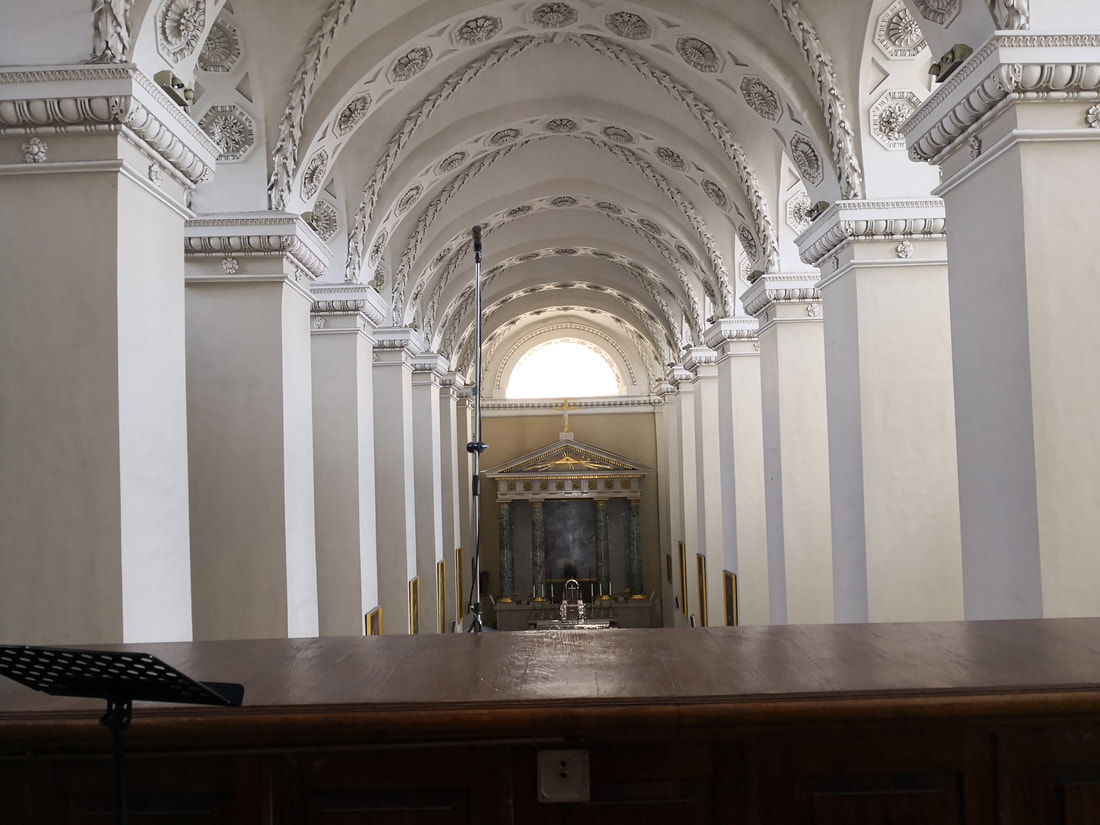
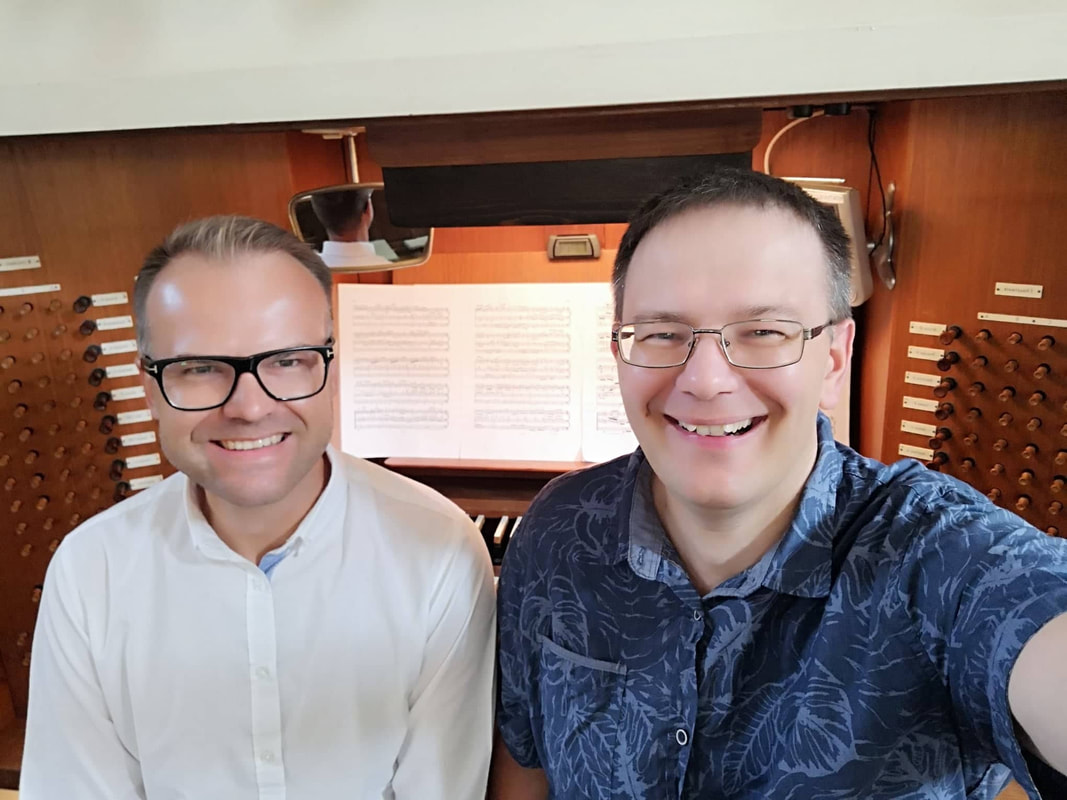
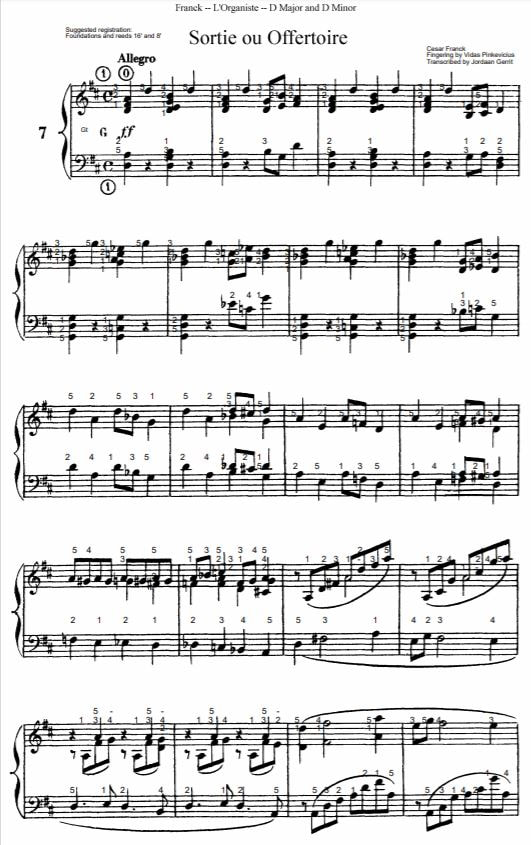

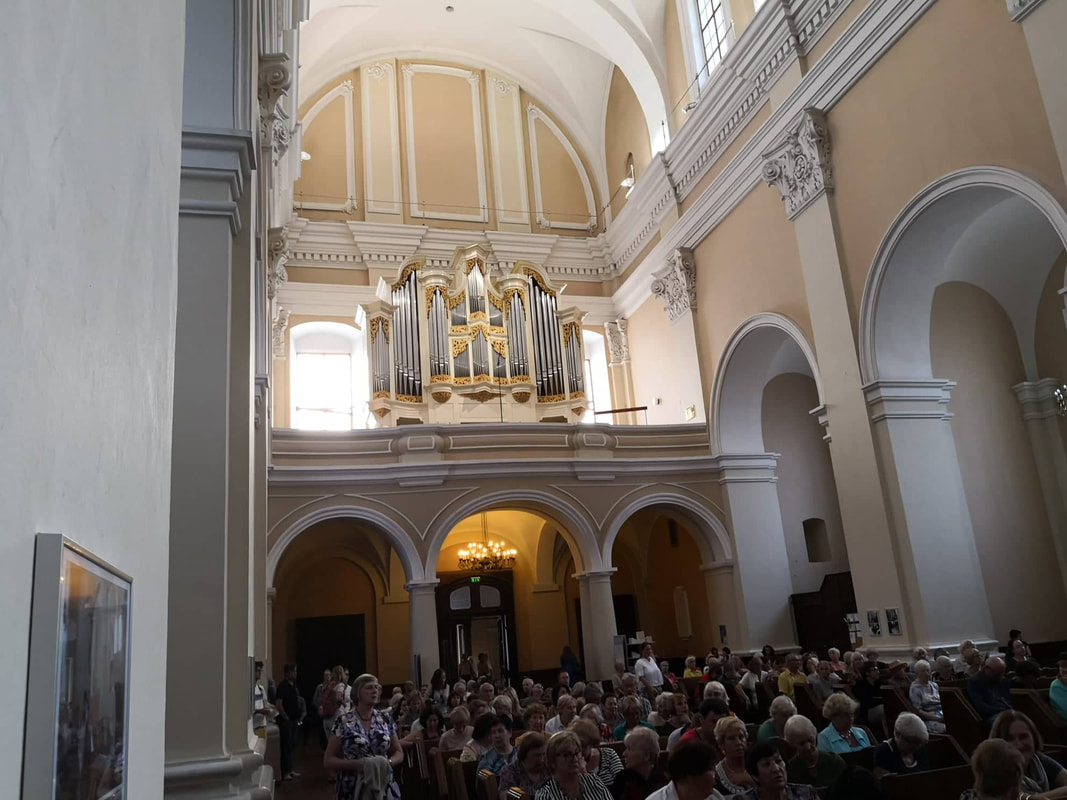


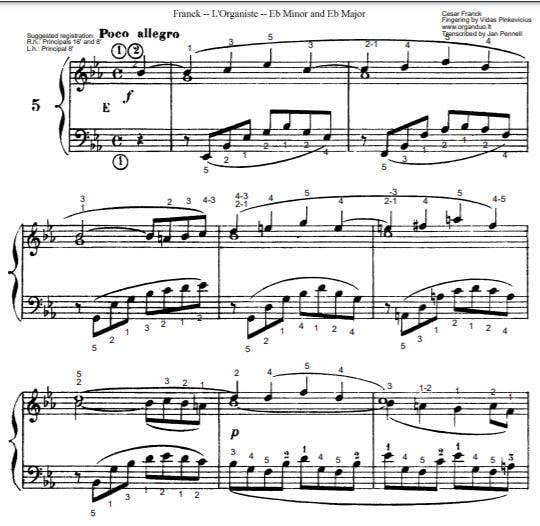



 RSS Feed
RSS Feed